Search Results
Showing results 1 to 20 of 59
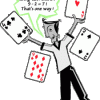
Fantastic Four: A Math Card Game
Source Institutions
This is a game that is sure to sharpen players' basic math skills. Players must use four randomly selected numbers to create an equation that equals a fifth number.
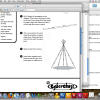
Make a Tikiville Teepee
Source Institutions
In this great hands-on activity, learners use patterns to make a teepee from newspaper that they sit inside.
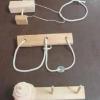
Topological Puzzles
Source Institutions
In this activity, learners construct three math puzzles out of simple materials like wood, string, and Styrofoam.
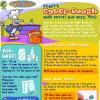
Digit's Cyber-Dough
Source Institutions
In this fun hands-on activity, learners whip up a batch of cyber-dough (play dough) using math for measurements.
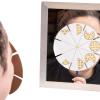
Make an Animation
Source Institutions
In this activity, learners make a device called a phenakistoscope, which displays a continuously looping animation consisting of images drawn onto a spinning disc.
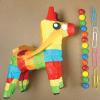
Family Math Activity: Measuring with Paper Clips and M&Ms
Source Institutions
In this activity, young learners and their caregivers use non-standard tools, like M&Ms and paper clips, to measure things around their home.
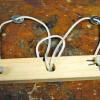
Two Washers
Source Institutions
In this activity, learners create a mind and math puzzle that requires a three-dimensional solution.

Cool It!
Source Institutions
In this fun hands-on activity, learners use simple materials to investigate evaporation. How can the evaporation of water on a hot day be used to cool an object? Find out the experimental way!
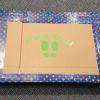
Paper Cup Stool
Source Institutions
In this activity, learners will explore how and why weight distribution works.

Can I Get Some Pi?
Source Institutions
In this activity, learners will explore pi and the mathematical relationships between a circle's diameter, circumference, and radius.
Some Sums
Source Institutions
In this math game, learners solve a mind-twisting puzzle using dominoes. Use this activity to help learners practice counting, adding, and solving problems.
Stacking Dice
Source Institutions
In this math game, learners try to earn the most points by winning stacks of four dice. Learners practice number recognition and addition skills.
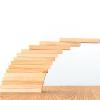
Take It From The Top: How Does This Stack Up?
Source Institutions
In this activity, learners explore center of gravity, or balance point, of stacked blocks.

Pi Toss
Source Institutions
In this activity, learners explore a surprising method for calculating the mathematical constant pi, known as Buffon's Needle.
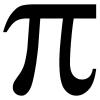
Applying Math to Astronomy
Source Institutions
In this mathematics activity (page 4 of the PDF), learners will explore the relationship between the diameter and circumference of an object.

Paper Cup Anemometer
Source Institutions
In this meteorological activity, learners get to build their very own anemometer (instrument for measuring wind speed) using a paper cup.
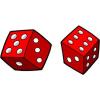
Probability: Chances Are
Source Institutions
In this math lesson, learners identify the likelihood of an event by using a walk-on probability scale.
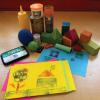
Shape Stamping
Source Institutions
In this activity, learners will explore two-dimensional shapes that are found in three-dimensional shapes. Learners will explore geometry, design, color and tool use through this activity.

Is it a Fair Game?
Source Institutions
In this math activity, learners play two versions of a card game and decide what makes a game fair. Learners also practice addition and subtraction skills.

Bank It!
Source Institutions
This simple but open-ended math game introduces basic probability concepts using coins and dice. Players roll the dice and collect coins to match the number rolled.
